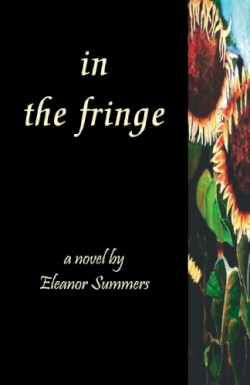In the Fringe
In the Fringe by Eleanor Summers purports to be a novel. But with its mix of fictionalization exposition and reliance on the twelve-step program of Alcoholics Anonymous for its structural backbone the book resonates more as a work of literary therapy than creative imagination. Once seen as such it becomes a more interesting and rewarding read about getting inside the skin of a recovering addict enmeshed “in the fringe.”
The book’s introduction reads more like an essay but it sets the parameters for the journey author Summers wishes to take into the fringe of the fabric of society with her central character. Lena wallows for much of her life in alcohol addiction in an eleven-year marriage of convenience with changing houses and changing hairstyles and an employment record of fourteen jobs in one year before she connects with Alcoholics Anonymous an understanding counsellor a college education and eventually a career in social work. It’s a touching story involving revelations of childhood abuse binge drinking an apparent suicide forays out of and lapses back into the fringe intimations of insanity and a spiritual epiphany in a bedroom sanctuary.
As in a three-hander play a trio of characters carries the story—a child known as Punk who becomes the adult called Lena and Lena’s omnipresent imaginary friend and omniscient narrator Ellen ever willing to pop suggestions into Lena’s head. Interwoven into the incidents of the narrative are often obvious sometimes oblique references to the AA’s twelve steps. The final chapter in fact is a description of the recovered Lena and “her turn to share this experience strength and hope to an audience of recovering alcoholics and addicts” as she speaks to them on July 4 2003 at “the Friday night meeting.” Her shared experience there between the references to the nervous laughter and compassionate giggles—her own and her audiences—summarizes her life in the fringe how “working the steps can be messy” and how she incorporated the steps into her life including accepting the advice that “If you have a problem with God talk to his mother.”
A target reading audience of those who live in the fringe those who work with them and those who have a genuine interest in the grittiness of the fringe will find Summers’ book an interesting one for its insights either fictionally or factually stated despite occasional typos a misquoted reference to Dr. Fell and other minor missteps.
Disclosure: This article is not an endorsement, but a review. The publisher of this book provided free copies of the book and paid a small fee to have their book reviewed by a professional reviewer. Foreword Reviews and Clarion Reviews make no guarantee that the publisher will receive a positive review. Foreword Magazine, Inc. is disclosing this in accordance with the Federal Trade Commission’s 16 CFR, Part 255.

